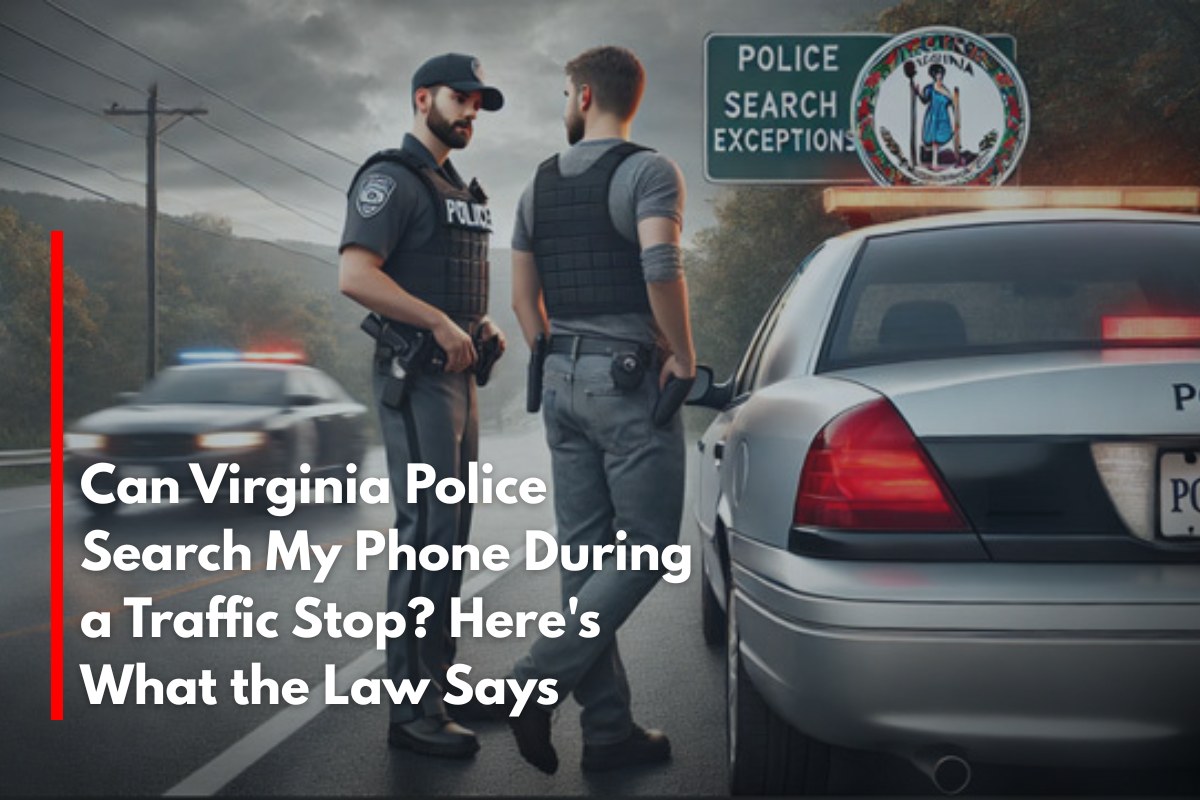Understanding your rights when it comes to police searches of your cellphone during a traffic stop in Virginia is crucial. As smartphones store huge amounts of private data, courts and laws offer special protections—but exceptions exist. Here’s what you need to know.
General Rule: Phones Are Protected—Warrant Usually Required
Under both Virginia and federal law, police cannot search the contents of your cellphone during a routine traffic stop without a warrant or your consent. The Fourth Amendment protects your privacy in your phone’s contents, meaning an officer typically must have probable cause and obtain a search warrant to access apps, texts, photos, and other information.
Exceptions to the warrant requirement:
Consent: If you freely and explicitly give permission, police can search your phone.
Abandonment: If you leave your phone behind and “abandon” it (for example, at a crime scene), courts may rule it’s no longer protected, allowing a warrantless search.
Exigent Circumstances: In rare cases—such as imminent threats to safety or risk evidence will be destroyed—police may temporarily seize your phone and later seek a warrant for its contents.
Police may seize your phone if they have probable cause to believe it contains evidence, but generally cannot search through its contents until a judge grants a warrant.
Traffic Stop Scenarios: What Can Happen
Routine Traffic Stop:
Officers cannot search your phone simply because you were pulled over for a traffic infraction.
Probable Cause:
If there is evidence to suggest your phone contains criminal evidence (for example, in a DUI or drug case), officers may seize the phone and apply for a search warrant.
Consent:
Never feel pressured to hand over or unlock your device. You can politely refuse—there’s no legal penalty for declining consent.
Plain View:
If your phone is visible but locked, police cannot lawfully search it without further legal basis.
Electronic Data Requests:
Law enforcement may sometimes try to use digital tools or subpoena phone records (with court approval) if they believe relevant evidence exists.
What If Police Ask for Your Password or Unlock Code?
You are not required to provide your phone’s password or unlock code. While police can ask, you are protected by the Fifth Amendment: giving up your passcode may constitute “self-incrimination,” and courts generally uphold this right.
Distracted Driving Laws: Phone Use While Driving
Virginia has strict laws prohibiting holding or using a phone while driving under §46.2-818.2. Police can cite you for handheld use, but this does not authorize a search or confiscation of your phone’s contents.
Know Your Rights
Police generally need a warrant to search your phone.
You do not have to consent to a search or provide a passcode.
Your phone is protected, unless you abandon it or exigent circumstances apply.
Police may seize a phone pending a warrant if there’s probable cause.
If you believe your rights were violated, contact an attorney as illegally obtained evidence may be suppressed in court. Always remain respectful but firm about your rights when dealing with law enforcement in Virginia.
Sources
[1] https://law.lis.virginia.gov/vacode/title19.2/chapter5/section19.2-59/
[2] https://www.govtech.com/public-safety/can-police-search-your-phone-during-a-traffic-stop
[3] https://www.koffellaw.com/blog/search-and-seizure-of-cell-phones-by-law-enforce/
[4] https://www.kingcampbell.com/blog/2021/december/can-police-search-your-phone-in-virginia-/
[5] https://www.shortplc.com/blog/the-impact-of-cell-phone-evidence-in-virginia-dui-cases.cfm











